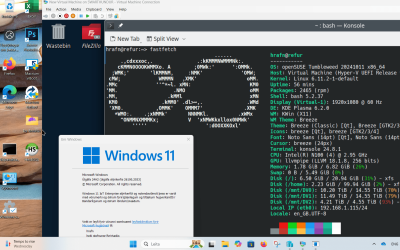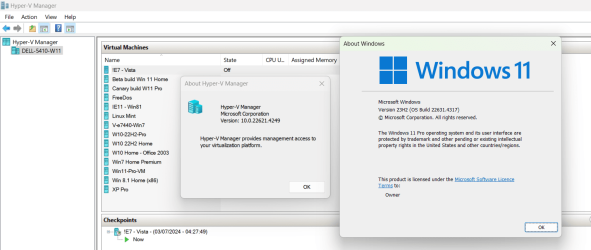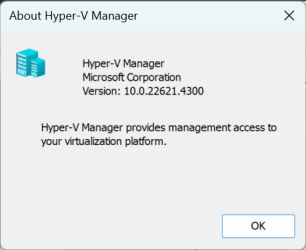- Local time
- 2:06 AM
- Posts
- 5,153
- Location
- Hafnarfjörður IS
- OS
- Windows XP,10,11 Linux (Fedora 42&43 pre-release,Arch Linux)
Hi folks
If sound isn't needed on your VM then the current version of HYPER-V seems far faster than previous builds -- I'm running this Linux distro with KDE desktop interface -- has zero problems even sending 4K UHD video to remote firesticks running Kodi plugged in to remote TV's (X3).
I don't need sound on that box.
My biggest 2 gripes are 1) No dynamic re-direction of USB and pcie devices (you have to establish virtual hardware before powering on the VM) and 2) lack of passthru of hardware.

Cheers
jimbo
If sound isn't needed on your VM then the current version of HYPER-V seems far faster than previous builds -- I'm running this Linux distro with KDE desktop interface -- has zero problems even sending 4K UHD video to remote firesticks running Kodi plugged in to remote TV's (X3).
I don't need sound on that box.
My biggest 2 gripes are 1) No dynamic re-direction of USB and pcie devices (you have to establish virtual hardware before powering on the VM) and 2) lack of passthru of hardware.

Cheers
jimbo
My Computer
System One
-
- OS
- Windows XP,10,11 Linux (Fedora 42&43 pre-release,Arch Linux)
- Computer type
- PC/Desktop
- CPU
- 2 X Intel i7
- Screen Resolution
- 4KUHD X 2










